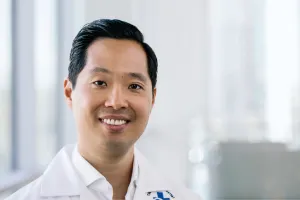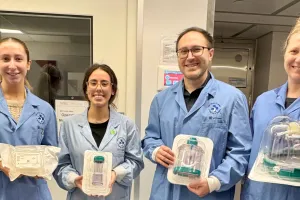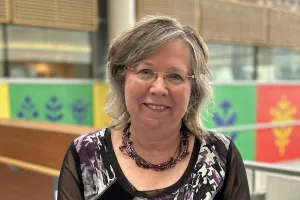New scientist profile: Dr. David Cook surveys cellular diversity in ovarian cancer to find better treatments
_600.jpg) "In addition to helping patients with ovarian cancer, I'm fascinated by the science of this disease, and how much we still have to learn." -Dr. David CookDr. David Cook fell into ovarian cancer research early in his career and never looked back. Today, he uses cutting-edge approaches to measure the activity of millions of individual cells throughout ovarian tumours, surveying their diversity, how they interact with one another, and how they contribute to disease progression and treatment response.
"In addition to helping patients with ovarian cancer, I'm fascinated by the science of this disease, and how much we still have to learn." -Dr. David CookDr. David Cook fell into ovarian cancer research early in his career and never looked back. Today, he uses cutting-edge approaches to measure the activity of millions of individual cells throughout ovarian tumours, surveying their diversity, how they interact with one another, and how they contribute to disease progression and treatment response.
"I'm excited to build an independent research group, and mentor the next generation of scientists," says Dr. Cook, who was recently appointed as a scientist in the Cancer Therapeutics Program at The Ottawa Hospital and an assistant professor at the University of Ottawa. "As a scientist your legacy is really the people you train, not the papers you publish."
Ovarian cancer often becomes resistant to treatment, and Dr. Cook hopes his work can help predict outcomes and develop strategies to improve those treatments.
These mapping approaches generate huge amounts of data, so he uses data science to find patterns in the noise. He hopes his lab will be the first to apply these strategies to different subtypes of ovarian cancer, including the under-studied rare cancers that disproportionately affect younger people.
"In addition to helping patients with ovarian cancer, I'm fascinated by the science of this disease, and how much we still have to learn," he says.
Dr. Cook's ground-breaking research is made possible in part through donations to The Ottawa Hospital Foundation, including generous support from the Taggart-Parkes Foundation.
The Ottawa Hospital is a leading academic health, research and learning hospital proudly affiliated with the University of Ottawa.
Learn more about:
The Ottawa Hospital is a leading academic health, research and learning hospital proudly affiliated with the University of Ottawa and supported by The Ottawa Hospital Foundation.


